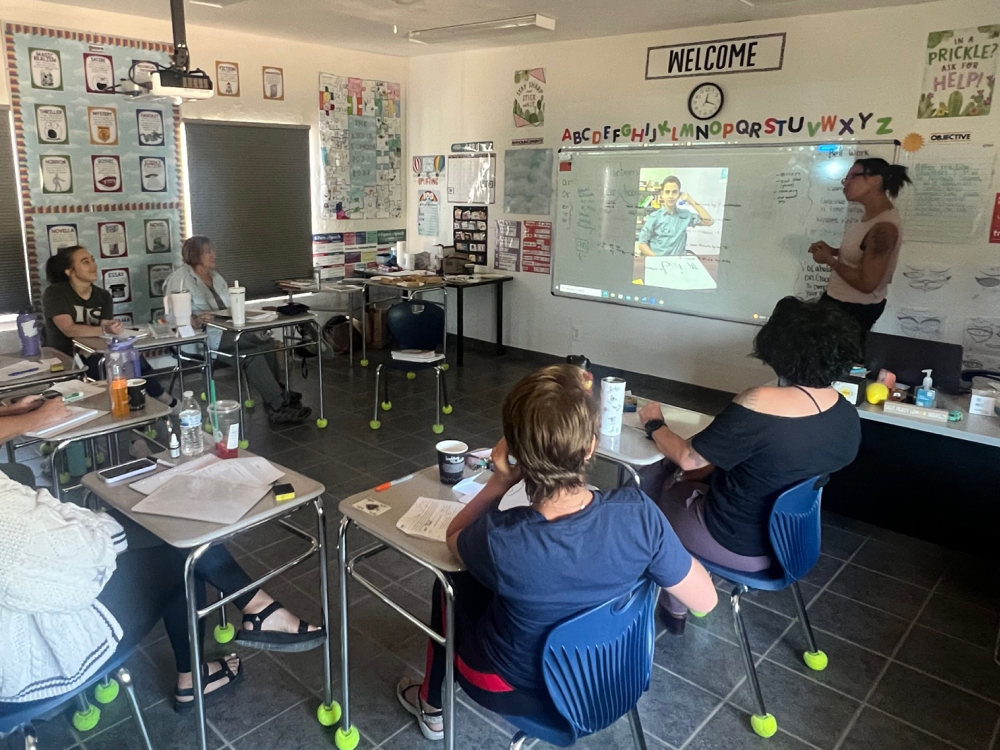How To More Effectively Teach Students With Reading Difficulties
Professional development training to equip teachers from pre kindergarten through sixth grade with a research-based approach to addressing reading challenges.

Introduction
In this training, teachers will learn reading strategies to help students overcome common reading challenges. The goal of reading is to achieve comprehension. This training will ultimately help teachers lead students to increase their reading comprehension scores.
Please Note: We will resume Professional Development Services in Spring 2025
Topics Covered in This Course Include:
How to Address Reading Challenges
In these trainings, teachers will learn how to differentiate classroom instruction according to different patterns of reading problems. Teachers will be able to successfully identify what the root of the reading problem is as well as which tool would be most effective to fix the problem.How to Fix Articulation Errors
Often, students have difficulty with decoding because they are incorrectly pronouncing letters. Minor articulation errors may be too little to receive speech therapy but enough to delay correct decoding and reading. Teachers will learn what to look for and listen for in their classroom and also strategies for correcting common or persistent letter-sound errors.How to Teach Sight Words
Students with learning challenges often have difficulty memorizing or recognizing sight words. That’s because there are over 300 of them! In this training, teachers will learn a more effective method for teaching sight words than just asking the child to memorize them.Teaching Syllable Types
Syllables are the foundation for learning to decode words, to spell words. They help us understand when a vowel says its name and why. Too often, teaching syllable types is under taught because teachers don’t feel comfortable enough with them to teach them. In this class, teachers will learn all 6 syllable types, from vowel teams to bossy -r and consonant -le, teachers will leave feeling confident about the syllable types.Learning the Spelling Rules
Spelling can be tricky! Learning the syllable types helps a lot but it’s also important for teachers to know the spelling rules. In this training, we will cover the FLOSS rule, _dge, _tch rules, vowel teams, prefixes and suffixes like -tion. Teachers will leave feeling confident about how to explain to children why words are spelled a certain way as well as helping them learn from their errors so they can spell well on their own!How to Teach Reading Comprehension
Understanding what we are reading, also known as reading comprehension, is the goal of learning to decode. In this training, teachers will learn effective strategies for helping students understand what they are reading. The elements of comprehension include: sequencing, inference, making connections, visualizing, main idea vs. details, making logical predictions, and background knowledge. Learn strategies for teaching each of these reading comprehension elements.How to Teach Reading to Kids With Dysgraphia, Dyslexia, Adhd, or Autism
Teaching students with learning differences or neurodiversity requires a strong skill set in reading instruction. Our professional development training will help you to identify common challenges of children with ADHD, dyslexia, and autism so that you can effectively and confidently provide effective instruction.Reading challenges for kids with dyslexia
Children with dyslexia tend to be extremely intelligent. But they have a hard time with the phonological processes of reading. Children with dyslexia tend to have reversals, difficulty remembering what they’ve read, difficulty sounding out words, difficulty remembering sight words, and a lot of trouble with spelling.Reading challenges for kids with ADHD
Children with ADHD tend to have lots of energy and excitement. But they have difficulty with executive functioning skills, focusing, completing tasks, managing their time, blending sounds when reading, and sequencing. They also tend to fidget or move constantly, which can create barriers to reading successfully. They tend to hear “slow down!” from their teachers and parents because they have a strong tendency to rush through their work, which impacts their reading accuracy and fluency. They make numerous mistakes which leads to their own disheartenment, disappointment, and frustration.Reading challenges for kids lower on the autism spectrum
Children with autism who need a lot of support often benefit from a much slower-paced, sequential, and systematic Orton-Gillingham based approach to reading that is extremely explicit and direct. Expect to work on oral motor programming (tongue placement, lip movement), diaphragmatic breathing (for fluency), behavior momentum strategies, and more.Reading challenges for kids higher on the autism spectrum
Children with autism who can decode basic words may present behavioral challenges that interrupt their trajectory toward reading at grade level. For example, they may wish for reject that certain letters create the same sounds (such as j and dge). They may insist on learning in such a specific and narrow manner that the introduction of new material becomes an obstacle. Reading comprehension is often very challenging for them, especially when it comes to making inferences or understanding fiction.
Please Note: We will resume Professional Development Services in Spring 2025

